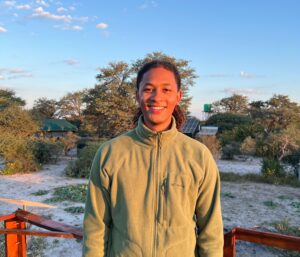Project
With my project, I aim to understand what drives human tolerance towards large carnivores and how this tolerance affects their movement in multi-use landscapes.
Part 1 – Understanding Drivers of Tolerance
Human-wildlife conflict, particularly due to livestock predation, often reduces tolerance toward large carnivores and leads to retaliatory killings—a key driver of global carnivore population declines. To understand what shapes people’s willingness to coexist with lions and leopards, I analyse structured interview data using Structural Equation Modelling (SEM). This approach allows me to test my theoretically grounded tolerance framework and identify key psychological and social predictors of tolerance.
Part 2 – Linking Tolerance to Carnivore Movement
Human tolerance may act as a spatial filter for wildlife movement, yet little is known about how carnivores respond to such social landscapes. Using Integrated Step Selection Functions (iSSF) on long-term GPS tracking data of leopards and lions, I assess how their habitat selection and movement behaviour are influenced by spatial variation in human tolerance, represented by a continuous surface derived from survey responses.
I work in collaboration with Leopard Ecology & Conservation (LEC), who conducted the social survey and collected the movement data that form the basis of my research.
CV
- 2024 – present: MSc Student in Biodiversity, Department of Evolutionary Biology and Environmental Studies, University of Zurich, Switzerland
- 2022 – 2024: BSc in Biology, University of Zurich, Switzerland
- 2017 – 2021: BSc in Sport Science and Biology (Minor), University of Bern, Switzerland

